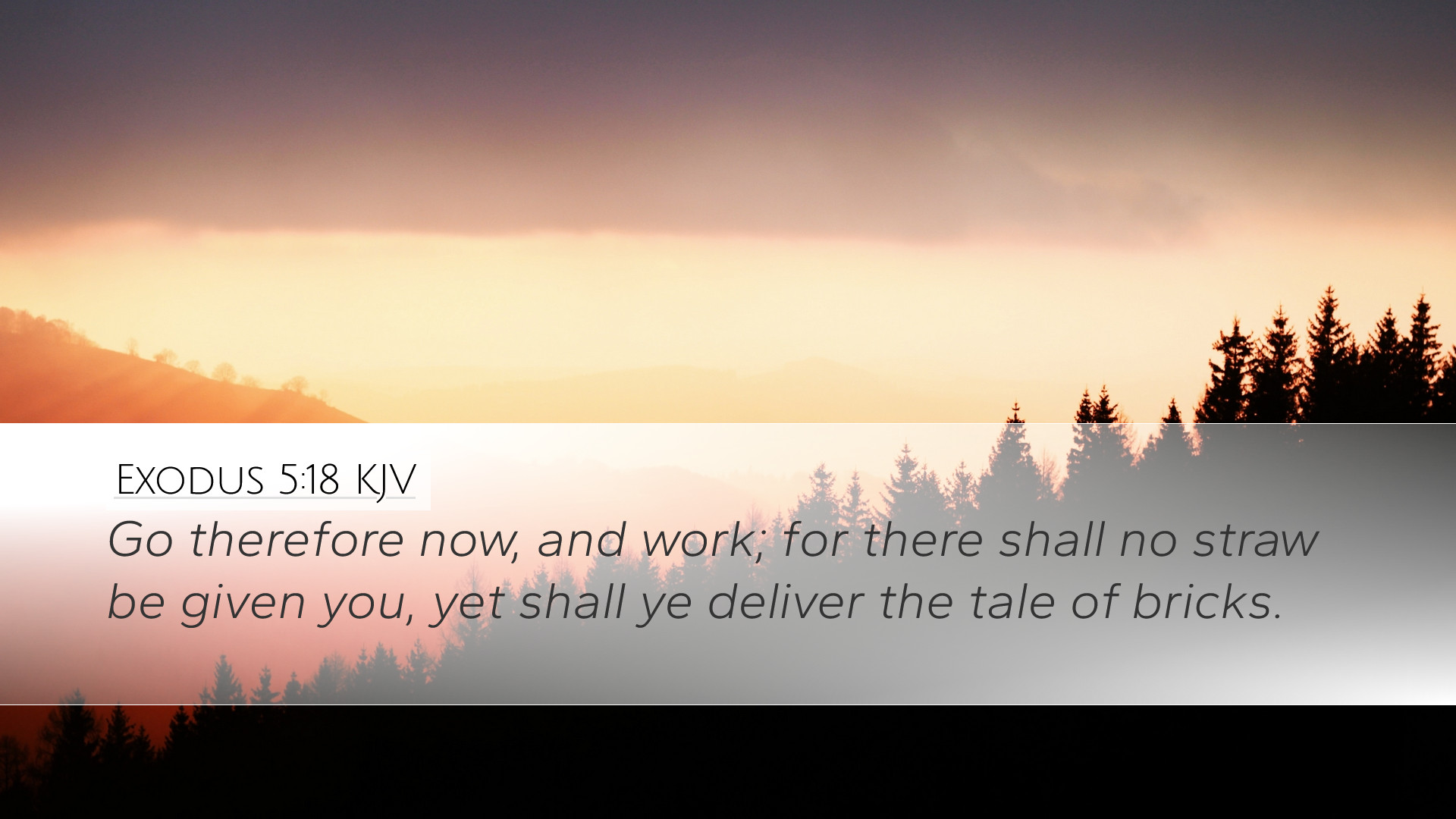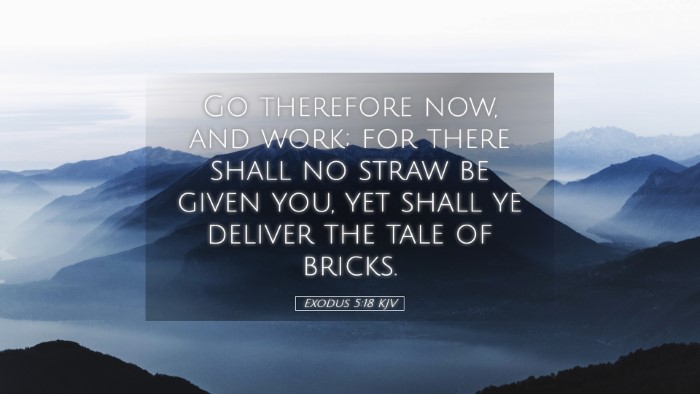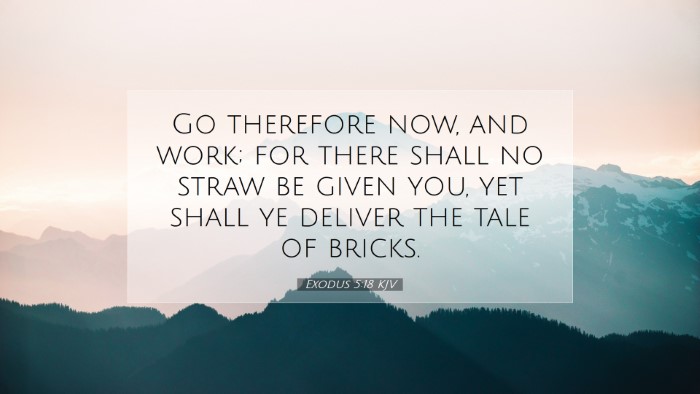Commentary on Exodus 5:18
Verse: Exodus 5:18 – "Go therefore now, and work; for there shall no straw be given you, yet shall ye deliver the tale of bricks." (KJV)
Contextual Overview
Exodus 5:18 is situated within the narrative of Moses' initial confrontations with Pharaoh in Egypt. This verse encapsulates the burden placed upon the Israelite slaves and highlights the increased oppression they faced following Moses’ request for their liberation. The context is crucial, as it reveals not only the hardships of the Israelites but also the resistance they encountered from their oppressors.
Theological Insights
This verse exemplifies several theological themes relevant to understanding oppression, divine providence, and the role of leadership in challenging unjust authority.
Oppression and Suffering
As noted by Matthew Henry, the edict from Pharaoh illustrates the harshness of slavery and the lengths to which oppressors will go to maintain control. The requirement for Israel to deliver the same quota of bricks without straw signifies an escalated oppression, symbolizing how oppressive regimes often react when challenged.
Divine Calling Amidst Adversity
Albert Barnes emphasizes that God often calls individuals to act in the face of adversity. The commands given to Moses came with the promise of deliverance, but the immediate circumstances seemed dire. This tension reflects the broader theme of faith being tested through difficult circumstances, encouraging believers to remain steadfast even when immediate results are not visible.
Leadership and Responsibility
Adam Clarke notes that Moses, as a leader, must have felt the weight of the Israelites’ suffering acutely. Leaders are sometimes called to lead others through tribulation and must bear the burdens of their communities. This verse serves as a reminder of the responsibility and accountability that comes with leadership, especially in the spiritual realm.
Historical and Cultural Perspectives
This verse also provides insight into the socio-economic conditions of Israelite laborers in ancient Egypt. The lack of straw symbolizes the denial of essential resources needed for labor, illustrating Pharaoh's intention to make the task not only impossible but also intentionally humiliating. Matthew Henry explains how this policy serves to break the spirit of the people, deterring any thoughts of rebellion or hope.
Symbolism of Straw
The straw in this passage represents the essential components required for fulfilling divine labor. When stripped of necessary resources, the Israelites’ capability to sustain their part in God’s plan appeared jeopardized. This serves as a potent allegory for how spiritual resources—faith, encouragement, and community—are often undermined in times of trial.
Applications for Today
For pastors and theologians, Exodus 5:18 raises several pertinent discussions about faith, resilience, and the role of the church in times of societal challenge.
Faith Under Pressure
- Encouragement to Persevere: This verse reminds us to encourage congregations to hold on to their faith in challenging times, reflecting on how the Israelite community had to trust God's promise despite their circumstances.
- Empathy for the Oppressed: Modern-day applications can be drawn from this verse in advocating for social justice, aligning with God’s heart for the marginalized and encouraging active engagement in humanitarian efforts.
Leadership in Crisis
- Visionary Leadership: Leaders in the church are called to articulate a vision of hope and liberation, much like Moses, reflecting on God's promises amidst the struggle.
- Community Support: The significance of community in sharing burdens is emphasized. It is vital that churches foster environments of support, understanding that the journey of faith is often fraught with challenges.
Conclusion
Exodus 5:18, when examined through the lenses provided by both historical and theological commentary, serves as a powerful reminder of the struggles faced by those who seek liberation and the complexities inherent in leadership during tumultuous times. By understanding the depths of this passage, pastors, students, and theologians are encouraged to reflect on their own faith journeys in the context of a broken world, championing both justice and resilience.


